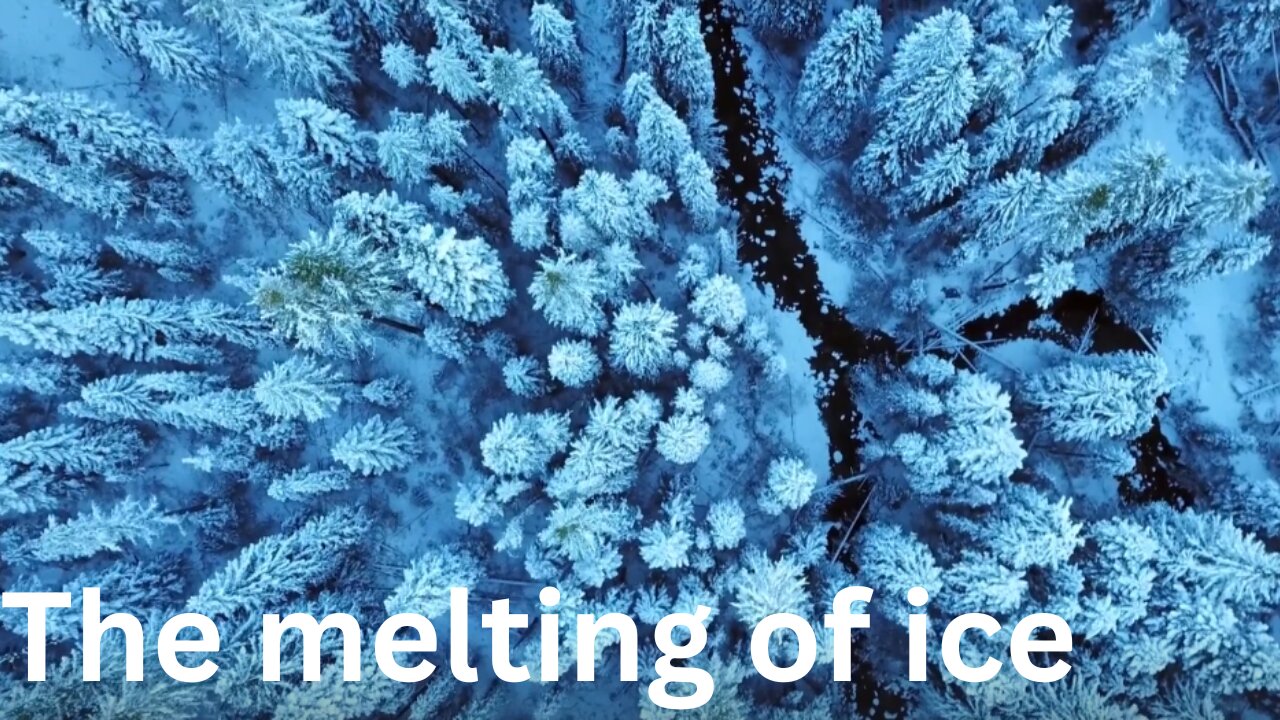Premium Only Content

Planet Earth. The melting of ice.
Climate change and ice melting is a phenomenon that causes significant changes in the environment and the global balance. Melting ice in Greenland and Antarctica has slowed the Earth's rotation, even affecting global timekeeping. This change in the distribution of Earth's mass is not only an interesting geophysical observation, but also a sign of the profound impact that human activity has on our planet. Scientists warn that continued ice loss will have even more serious consequences, including rising sea levels, changing climate patterns and threatening biodiversity. The need for action is urgent and immediate action is required to reduce carbon dioxide emissions and promote sustainable practices. Only through concerted global efforts can we hope to reverse or at least slow down this alarming trend. Informing and educating the public are critical steps toward achieving this goal, as understanding the problem is the first step toward solving it.
Melting ice has multiple and serious consequences for the environment and human life. First, rising sea levels threaten coastal communities and infrastructure, while increasing the frequency and intensity of flooding. Second, the change in albedo, i.e. the reflective ability of the Earth, due to the reduction of ice caps, leads to further global warming. Third, the destabilization of the polar air stream can cause extreme weather events, such as droughts and heavy rainfall, that affect agriculture and food availability. Fourth, changes in ocean temperatures and currents can affect marine life and fisheries. Fifth, catastrophic flooding from collapsing glaciers threatens local communities and economies. It is clear that melting ice is not only an environmental issue, but also a global challenge that requires immediate action and cooperation at the international level. Understanding the consequences and informing the public are critical steps toward addressing this threat.
-
 27:40
27:40
TheRoyaltyAutoService
14 hours ago $0.61 earnedHow To Replace A Battery Like A Professional!
17.1K1 -
 5:15:03
5:15:03
B2ZGaming
5 hours agoTwo For Tuesday!!! | B2Z Gaming
142 -
 LIVE
LIVE
BBQPenguin_
3 hours agoExtraction Action! Looting & PVP
10 watching -
 8:52
8:52
The Art of Improvement
19 hours ago $0.16 earned7 Habits Of Unsuccessful People You Don’t Want To Copy
1.31K -
 36:17
36:17
Uncommon Sense In Current Times
16 hours ago $0.52 earnedIs Humanism A Religion in Disguise: A Discussion with Humanist Stephen Law - Part 1
8.57K2 -
 30:07
30:07
Degenerate Plays
15 hours ago $0.10 earnedReverse Captain America! - Call of Duty: Modern Warfare 2 (2009) : Part 1
2.07K -
 7:56
7:56
Faith Frontline
13 hours agoCIA Spy CONFIRMS Bible Prophecy Is Playing Out Right Now
2.93K -
 1:25:26
1:25:26
Coin Stories with Natalie Brunell
21 hours agoCan the State Crush Bitcoin? And the Next Big Financial Crisis with Dave Collum
29.8K1 -
 26:38
26:38
DeVory Darkins
1 day ago $7.56 earnedNewsom suffers CRUSHING LOSS after SCOTUS ruling hands Trump HISTORIC WIN
12.3K77 -
 11:23
11:23
Nikko Ortiz
1 day agoArmy Tik Tok Fails Go Hard
71.5K7